 中文版
中文版
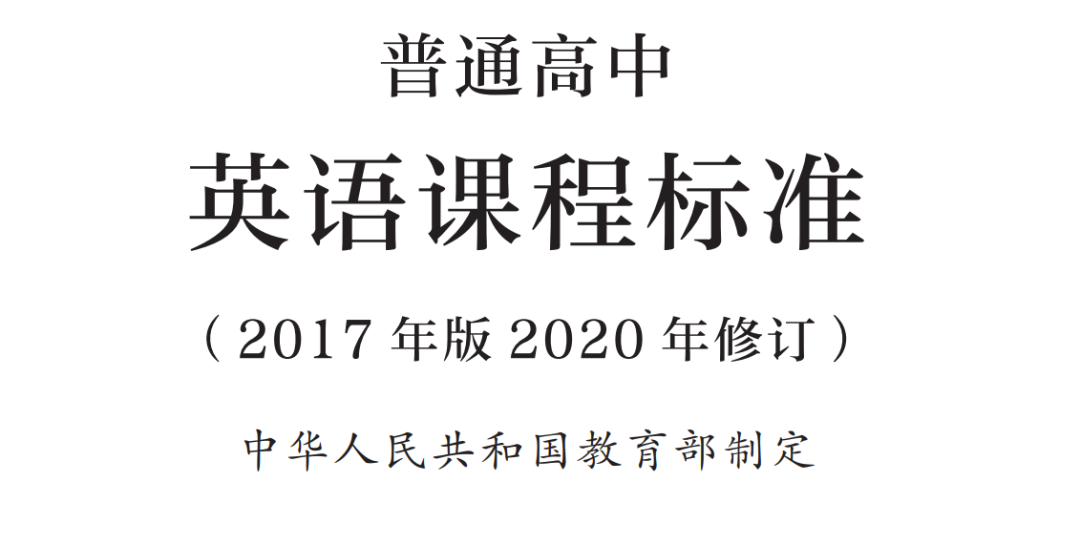
主题为语言学习提供主题范围或主题语境。学生对主题意义的探究应是学生学习语言的最重要内容,直接影响学生语篇理解的程度、思维发展的水平和语言学习的成效。在人与自我、人与社会和人与自然这三大主题语境中,人与自我涉及“生活与学习”“做人与做事”等两个主题群下的9项子主题;人与社会涉及“社会服务与人际沟通”“文学、艺术与体育”“历史、社会与文化”“科学与技术”等四个主题群下的16项子主题;人与自然涉及“自然生态”“环境保护”“灾害防范”“宇宙探索”等四个主题群下的7项子主题。所有主题语境都应包含中外文化的范畴。表2按照学生在普通高中英语课程中应学习的三大主题语境描述内容要求,供教材编写者和教学实施者参考。虽然主题语境的内容要求未按照必修、选择性必修和选修三类课程进行描述,但在实施过程中其广度和深度应该呈现递进状态,体现出这三类课程不同的语言要求、内容广度和内涵深度。 英文版
英文版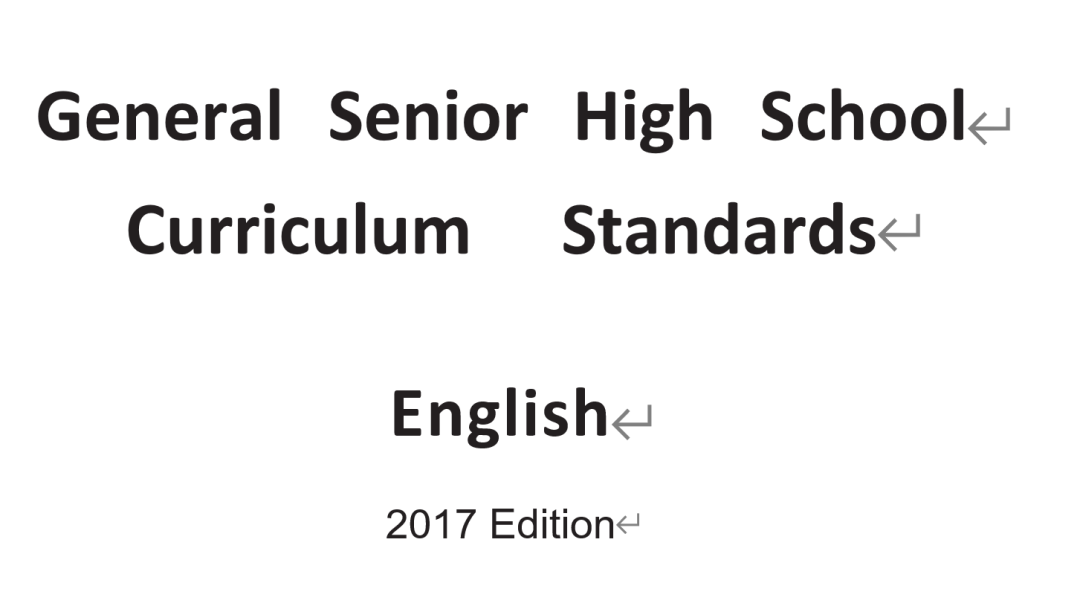
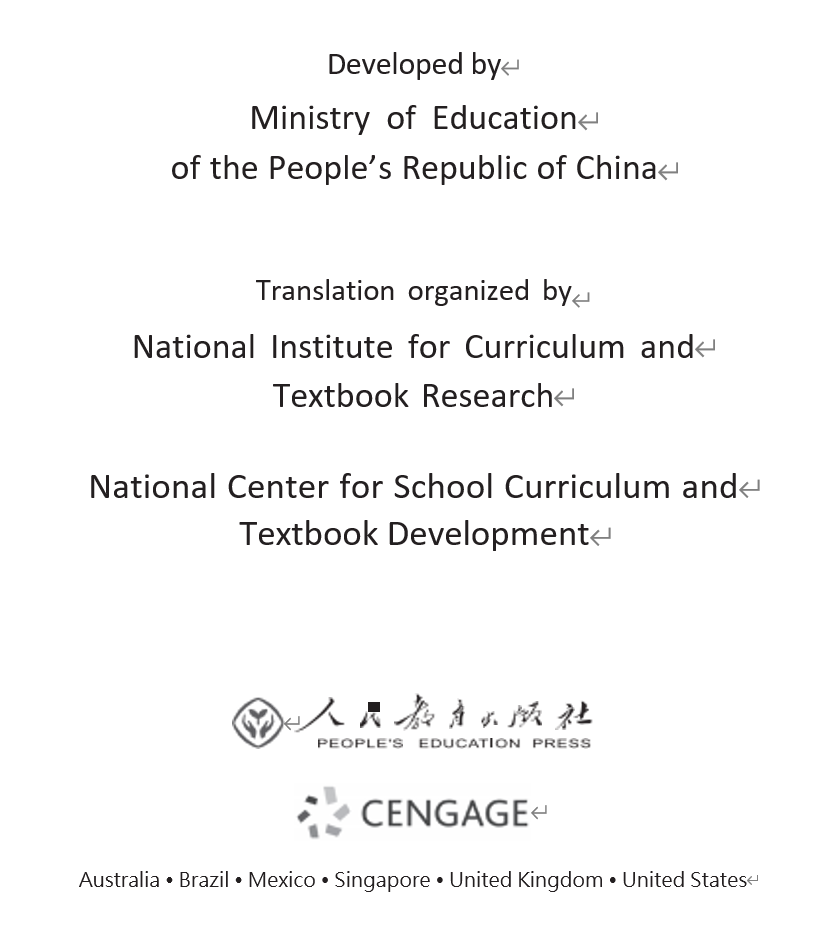 The theme provides a thematic scope or a thematic context for language learning.Students’ exploration of thematic meaning should be the most important part of their language learning, which directly affects the degree of text comprehension, the level of thinking development, and the effectiveness of language learning. There are three thematic contexts(主题语境): man and self, man and society, and man and nature. The theme “man and self ” has 9sub-themes(子主题) under the two thematic categories(主题群), which are “life and learning” and “learning to be and learning to do.” The theme “man and society” has 16 sub-themes under the four thematic categories: “social services and interpersonal communication,” “literature, art, and sports,” “history, society, and culture,” and “science and technology.” The theme of “man and nature” has 7 sub-themes under the four thematic categories, which are “natural ecology,” “environmental protection,” “disaster prevention,” and “space exploration.” All the thematic contexts should include both Chinese and foreign cultures.Table 2 presents the content requirements of the three thematic contexts that students should learn in senior high school, which provide reference for textbook writing and classroom teaching. Although the content requirements of the thematic contexts are not specified for the required courses(必修课程), the required elective courses(选择性必修课程), and the elective courses(选修课程) respectively, in the course of practice, the breadth and depth should be progressive so as to reflect the differences in language requirement, content scope, and depth of exploration of the three categories of courses.
The theme provides a thematic scope or a thematic context for language learning.Students’ exploration of thematic meaning should be the most important part of their language learning, which directly affects the degree of text comprehension, the level of thinking development, and the effectiveness of language learning. There are three thematic contexts(主题语境): man and self, man and society, and man and nature. The theme “man and self ” has 9sub-themes(子主题) under the two thematic categories(主题群), which are “life and learning” and “learning to be and learning to do.” The theme “man and society” has 16 sub-themes under the four thematic categories: “social services and interpersonal communication,” “literature, art, and sports,” “history, society, and culture,” and “science and technology.” The theme of “man and nature” has 7 sub-themes under the four thematic categories, which are “natural ecology,” “environmental protection,” “disaster prevention,” and “space exploration.” All the thematic contexts should include both Chinese and foreign cultures.Table 2 presents the content requirements of the three thematic contexts that students should learn in senior high school, which provide reference for textbook writing and classroom teaching. Although the content requirements of the thematic contexts are not specified for the required courses(必修课程), the required elective courses(选择性必修课程), and the elective courses(选修课程) respectively, in the course of practice, the breadth and depth should be progressive so as to reflect the differences in language requirement, content scope, and depth of exploration of the three categories of courses.
 中文版
中文版
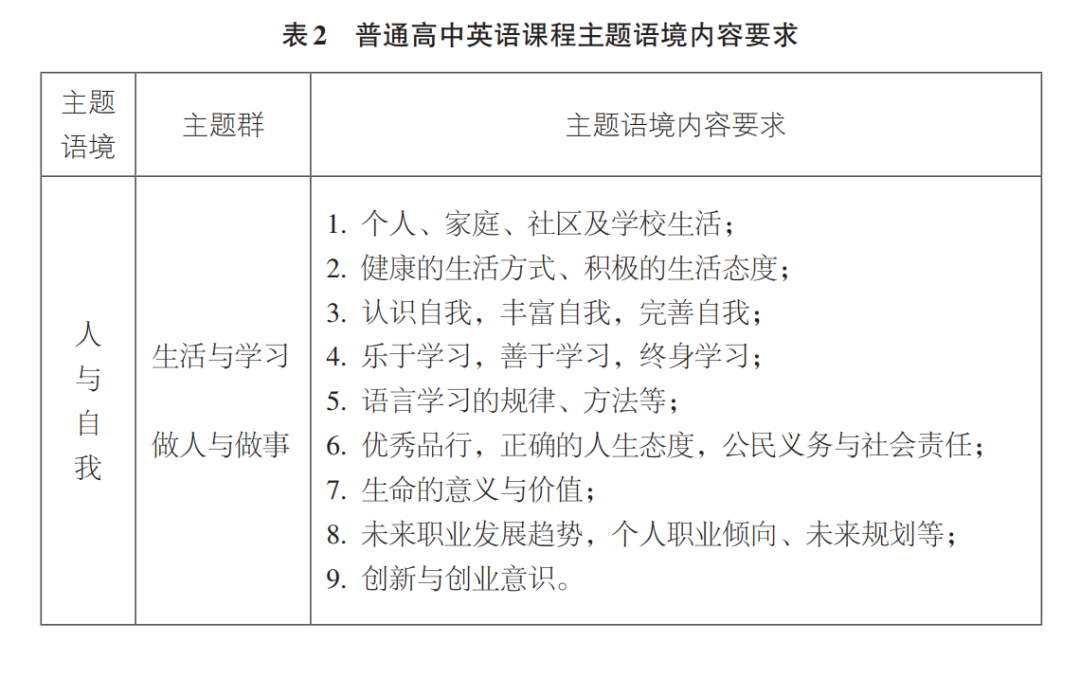
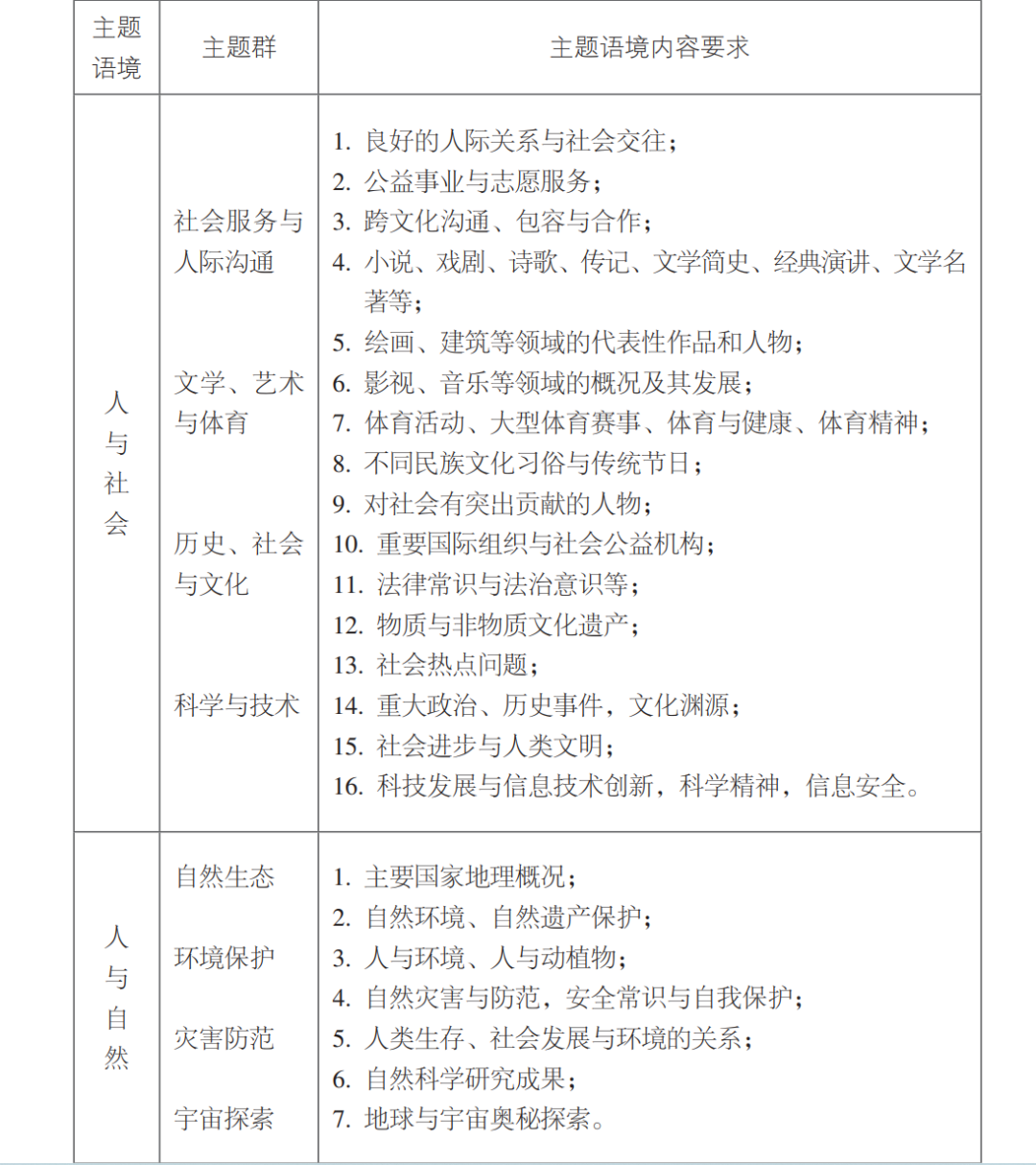
 英文版
英文版

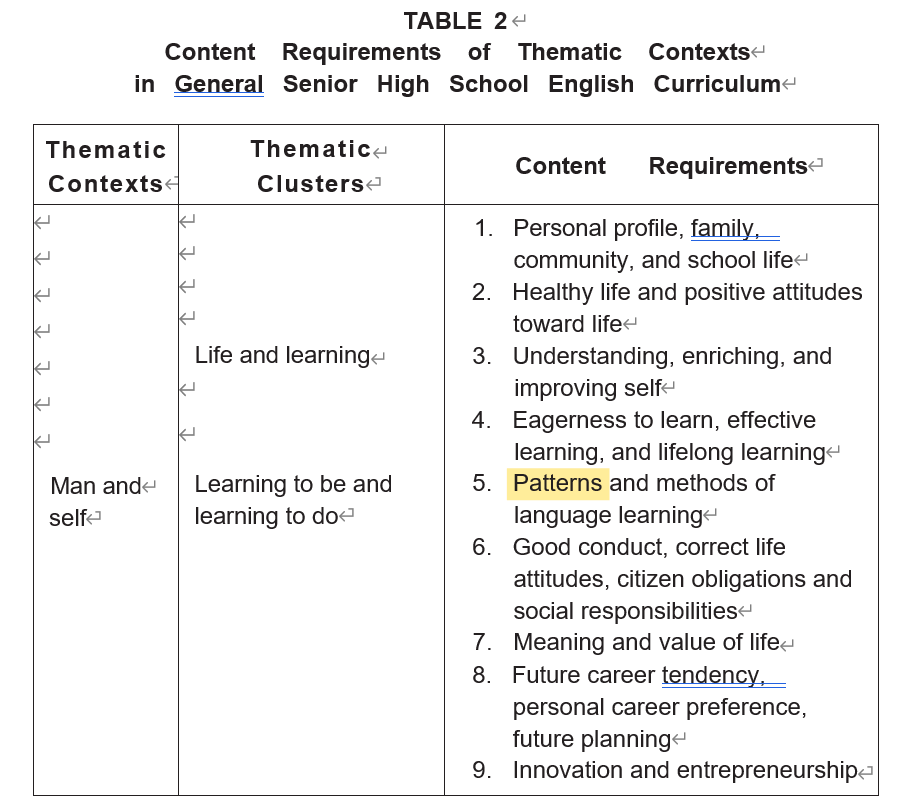
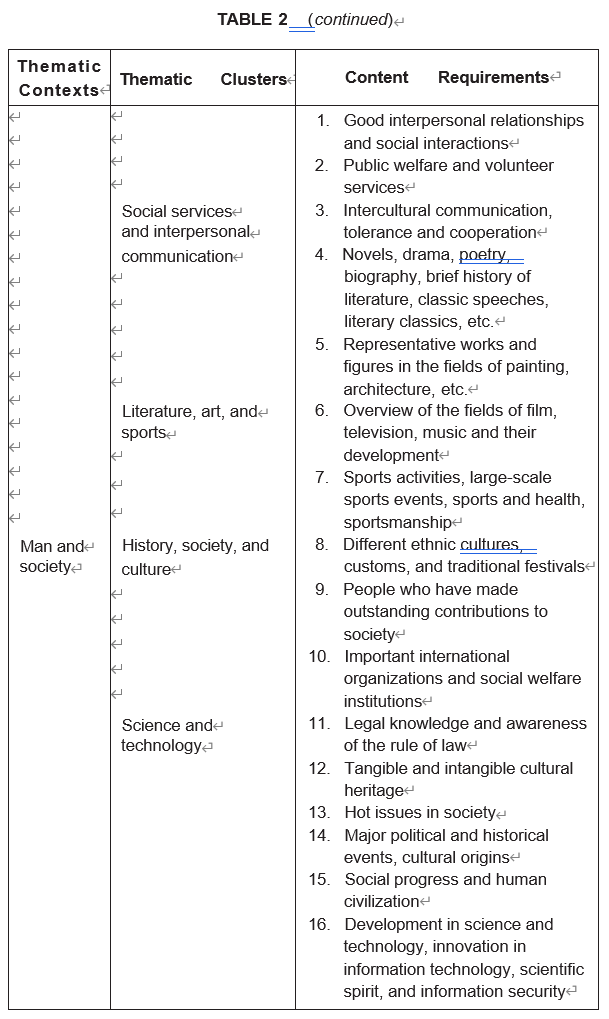
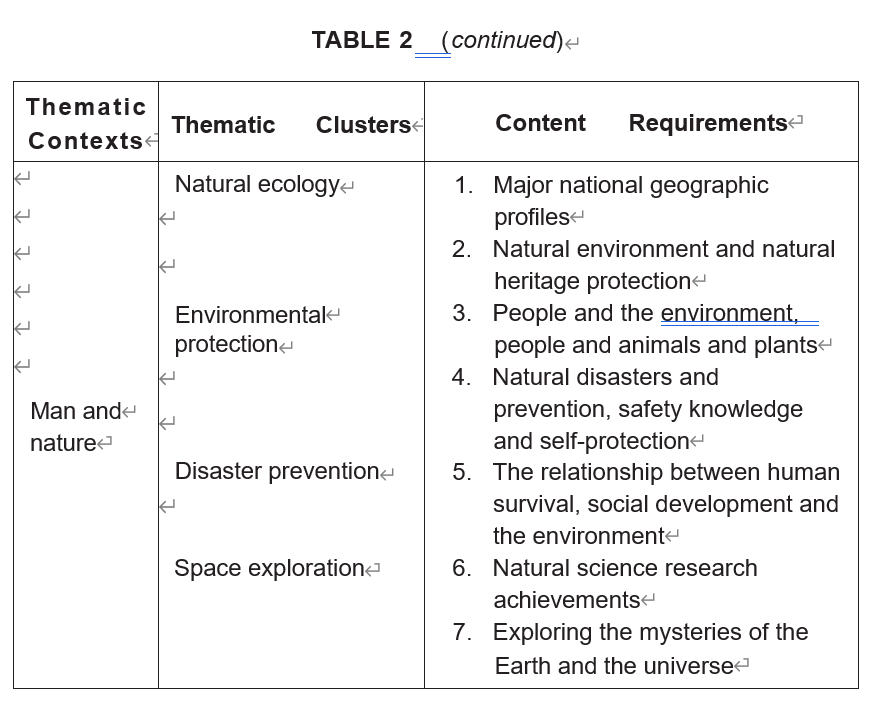
 中文版
中文版


 英文版
英文版




发表评论